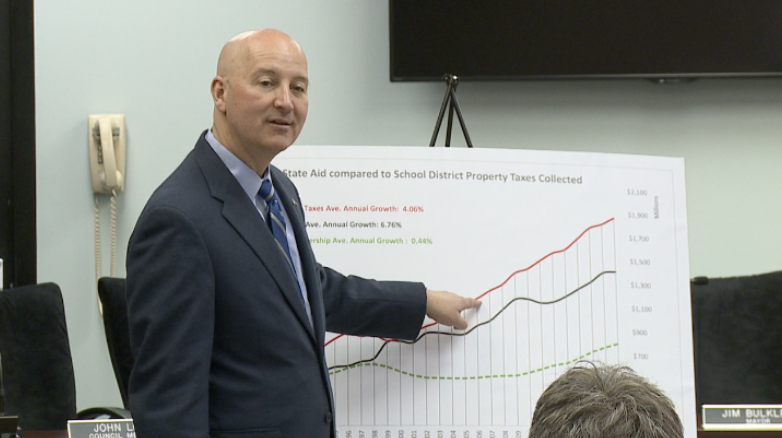COLUMBUS – As part of a series of town halls he is hosting this week, Gov. Pete Ricketts made a stop in Columbus on Wednesday to discuss such items as disaster relief, state growth, and the ongoing property tax battle within the legislature.
Ricketts began the meeting by talking about the progress the state has made with regards to disaster recovery, discussing the recent creation of the Governor’s Task Force on Housing to help Nebraskans displaced by the flood. Ricketts also spoke about the progress on rebuilding the 12 bridges that are still out across the state, saying that some bridges will be rebuilt this summer, with all bridges being back in operation by next summer at the latest.
Ricketts also said that some help still needs to come from the federal government, as he was one of 10 governors on Wednesday who called on Congress to finalize a supplemental disaster relief proposal. Ricketts said that farmers and ranchers especially need the aid from Congress.
“The aid that they need to apply for, whether it’s livestock assistance or environmental assistance to remediate their pastures that have been covered in sand, that all requires that federal help,” Ricketts said.
The topic of conversation later shifted to property tax relief, with Ricketts being steadfastly against raising taxes in order to create tax relief. LB289 in the legislature calls for raising sales taxes on a variety of different items in an attempt to create that relief, and Ricketts said he’s not willing to put the price of the tax relief package on the people who can least afford to do it.
Ultimately, Ricketts believes that the best way to foster property tax relief is for the state to limit its spending instead of raising any sort of taxes.
“The only way you can have sustainable tax relief is by controlling spending, that’s what we’ve done at the state,” Ricketts said. “In fact, our budget only grew half a percent over these last two years…that’s what has to happen at the local level as well, we’ve got to have spending controls locally so that when the state does provide aid, it doesn’t get eaten up by additional spending.”
















